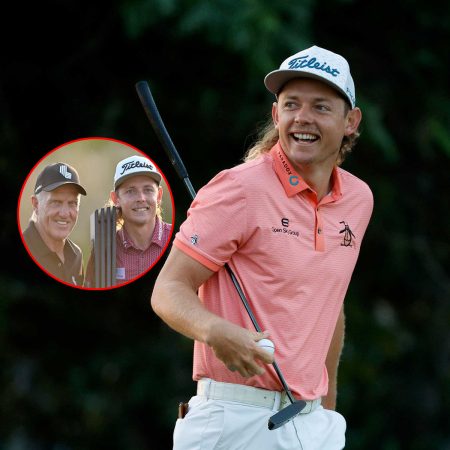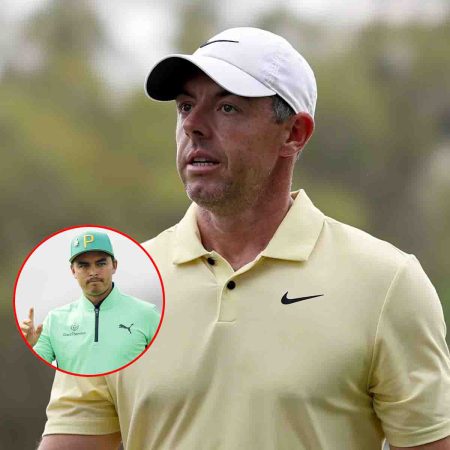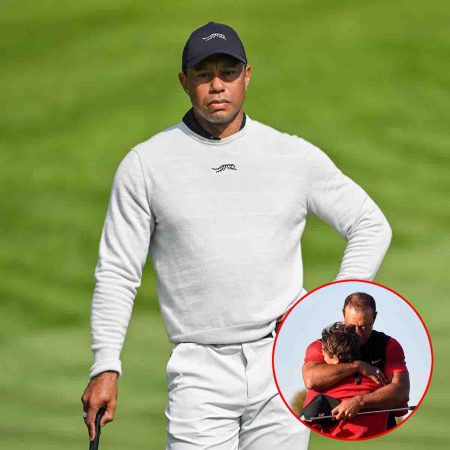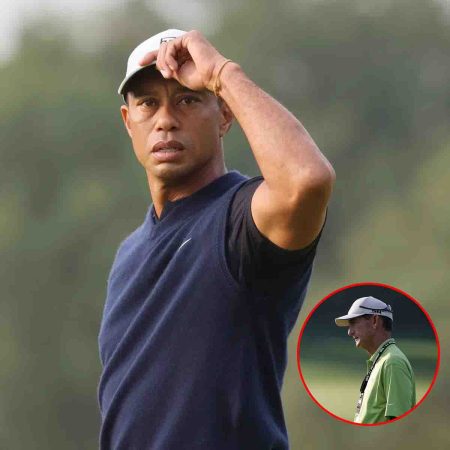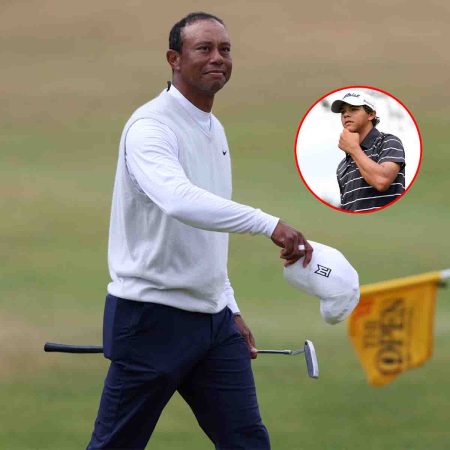Every year, the best players are voted at the break to signify the best players in the league. To be an All-Star means that you are better than the rest of the pack. The NBA features many great players, but to be recognized as one of the best players is truly an achievement, especially in a league that stresses star power. One player was a true superstar, and that is why the Most Valuable Player Award is named after him.
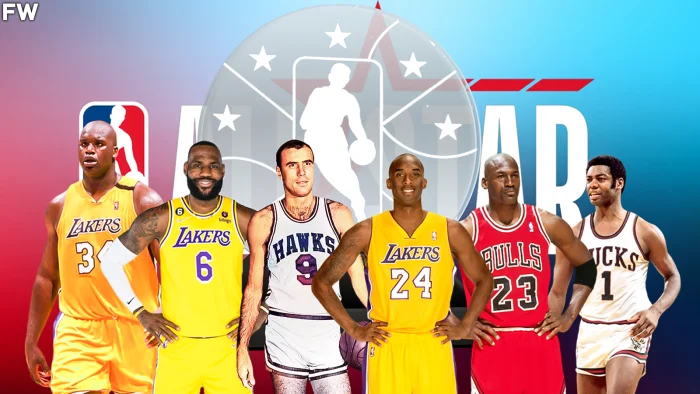
The Kobe Bryant MVP Award is given out to the top player at the All-Star Game. It recognizes the best player at the All-Star Game. We all know by now that this game is an exhibition that lacks defense. However, with the new rule changes, the involvement of charity, and the recognition of being linked to Kobe Bryant, the league has taken on new measures that give this award new meaning. Even before Kobe Bryant’s name was attached, this award meant something to some players. That is why some players have more All-Star Game MVPs than others.
The All-Star Game is approaching. As we prepare for it, let’s take a look at the players with the most Kobe Bryant All-Star Game MVP Awards.
Bob Cousy – 2 Awards (1955, 1957)
One of the greatest Celtics players of all time, Cousy is a two-time winner of the MVP Award. Cousy won the 1955 Award when he led the Eastern Conference in scoring 20 points. Known for his passing abilities, Cousy nearly secured a double-double but not with assists. Cousy had 20 points, nine rebounds, and five assists in the 100-91 win over the West, which featured Cousy shooting 7 of 14 from the field.
Cousy took the award again in 1957 despite a lackluster performance. Neil Johnston led the East in scoring with 19 points and nine rebounds, but Cousy was rewarded with MVP honors with 10 points, five rebounds, and seven assists. Johnston shot 8 of 12 from the field, while Cousy was 4 of 14 from the field. Congrats to Cousy, but Johnston made one heckuva case to win this at the time.
Julius Erving – 2 Awards (1977, 1983)
The first MVP honor was an absolute toss-up. Erving and Bob McAdoo could have flipped a coin. Erving scored 30 points on 12 of 20 shooting, made 6 of 6 free throws, secured 12 rebounds, and had three assists. McAdoo had 30 points on 13 of 23 shooting, made 4 of 4 free throws, and secured 10 rebounds with two assists.
When Erving won his second award in 1983, he truly earned it. The East defeated the West 132-123, with Erving leading the way with 25 points, six rebounds, and an 11 of 19 shooting night from the field. Erving led both sides in scoring, but Larry Bird and Sidney Moncrief gave him a run for his money. Bird had a double-double of 14 points and 13 rebounds, while Moncrief had 20 points and five rebounds.
Isiah Thomas – 2 Awards (1984, 1986)
There was a time when the All-Star Game was an actual competitive specimen. The 1984 contest featured an overtime classic that was won by the East 154-145. This was also the last time that the All-Star Game was played in January. Julius Erving had a monster game with 34 points, but Thomas had a double-double of 21 points and 15 assists to claim the MVP honors.
Thomas led the East to a 139-132 narrow victory in 1986 to claim his second MVP. Kareem Abdul-Jabbar finished with 21 points for the East, while his Laker teammate James Worthy had 20 points. Thomas outplayed everyone with 30 points and 10 assists to make it a no-brainer that he earned this trophy.
Karl Malone – 2 Awards (1989, 1993)
In 1989, Karl Malone and Dale Ellis had a back-and-forth for the best. What it likely came down to was three rebounds. Malone led the West to a 143-134 win over the East with 28 points, nine rebounds, and 12 of 17 shooting. Ellis had 27 points, six rebounds, and shot 12 of 16 from the field.
When Malone won Co-All-Star MVP with John Stockton in 1993, it was an overtime classic that featured a 135-132 win over the East. Malone finished with 28 points and 10 rebounds. David Robinson also finished with a double-double of 21 points and 10 rebounds but came up just a little bit short. John Stockton finished with nine points and 15 assists, feeding his Jazz teammate in the paint as the West overcame 30 points from Michael Jordan.
Magic Johnson – 2 Awards (1990, 1992)
In simple terms, the Eastern Conference dominated this game with a 130-113 win. With that said, the 1990 MVP winner was Magic Johnson, with 22 points and six rebounds. Seven players of the East finished in double figures. Patrick Ewing had 12 points and 10 rebounds, while both Charles Barkley and Michael Jordan had 17 points. Instead, Johnson walked out as the MVP on the losing team.
Despite not playing during the regular season due to an HIV diagnosis, Johnson returned for the All-Star Game in 1992. Johnson helped the West win easily 153-113 with 25 points and nine assists. While Johnson was out for the season, he reminded everyone that he remained the best point guard around.
Allen Iverson – 2 Awards (2001, 2005)
Iverson had a huge game to help the Eastern Conference overcome a brutal first half in 2001. The East trailed the West 61-50 at halftime and then were outscored 28-20 in the third. The East rallied with a 41-21 advantage in the fourth, with Iverson leading the way with 25 points to take the 111-110 win.
In 2005, a double-double had Iverson rise among the rest. The East took the game 125-115 but had seven players score in double figures as Iverson tied Jermaine O’Neal for the most points with 15. However, with 10 assists and five steals, Iverson was given MVP honors. He was the only player, guard, and post that had a double-double in the game.
Russell Westbrook – 2 Awards (2015, 2016)
In one of the highest-scoring games ever, the 2015 classic was won by the Western Conference 163-158. With the defense lacking, LeBron James scored 30 points to keep the East hanging around, but he was countered by James Harden’s 29 points. With that said, the player that rose above everyone was Westbrook, with 41 points off of the bench. Westbrook shot 16 of 28 from the field, 5 of 9 from three-point range, and he made all four free throws.
The following season saw an increase in the offense even further. The West nearly scored 200 points in the 196-173 win. Had the East won, maybe Paul George’s 41 points might have been enough, but instead, Westbrook led the West with 31 points, eight rebounds, five assists, and five steals to take the win. Westbrook was one of five players to score at least 20 points but had the best game.
Kevin Durant – 2 Awards (2012, 2019)
Who would have thought that the All-Star Game would have been a preview for the NBA Finals? Durant and LeBron James battled each other with 36 points each. However, the West narrowly came out on top 152-149, with Durant taking MVP honors with the team win. Durant added seven rebounds, three assists, and three steals. The team win should be stressed because Dwyane Wade finished with a triple-double of 24 points, 10 rebounds, and 10 assists, and Durant was still given MVP.
Durant won his second MVP in a different format. With drafted teams, Team LeBron blew past Team Giannis 178-164 thanks to a strong second half, outscoring the other team 96-69. Durant led the team with 31 points and seven rebounds. He was the only player with 30 points on Team LeBron, outpacing the 38 points scored by Giannis Antetokounmpo.
Oscar Robertson – 3 Awards (1961, 1964, 1969)
Six players in team history have won at least three All-Star Game MVPs. In 1961, three players in the West finished with a double-double to lead the team to a 153-131 win. Despite Clyde Lovellette finishing with 21 points and 10 rebounds, as well as Elgin Baylor’s 15 points and 10 rebounds, the MVP went to Robertson, who had 23 points and 14 assists.
The East took the 1964 game 111-107, and Robertson was the only player on both sides that had at least 20 points. Bill Russell finished with 13 points and 21 rebounds, but Robertson nearly had a triple-double. With 26 points, 14 rebounds, and eight assists, Robertson claimed his second MVP honor.
To win his third MVP, Robertson had to outplay Elgin Baylor. In the fourth quarter, the East used a 37-29 advantage to pull away 123-112. Robertson scored 24 points, six rebounds, and five assists. Earl Monroe secured a double-double of 21 points and 12 rebounds, but Robertson shot better. Robertson shot 8 of 16 from the field, while Monroe was 6 of 15 from the field.
Michael Jordan – 3 Awards (1988, 1996, 1998)
Jordan and Dominique Wilkins put the East on their back in 1988. The East took the win 138-133 thanks to 69 combined points from the two stars. Wilkins finished with 29 points and five rebounds, but Jordan shot 17 of 23 from the field to score 40 points. Jordan added eight rebounds, three assists, four steals, and four blocks.
In 1996, the West had a deep bench that featured four double-digit scorers, but that still was not enough to pace with the East. Shaquille O’Neal had a perfect case to win MVP honors in the 129-118 East victory. O’Neal had 25 points and 10 rebounds on a 10 of 16 shooting night. Meanwhile, Jordan scored 20 points, four rebounds, and shot 8 of 11 from the field. It was, after all, the first All-Star Game Jordan played in since retiring the first time.
Jordan put all speculation aside in 1998 when he finished as the only 20-point scorer on both sides. With 23 points, six rebounds, eight assists, and three steals, Jordan paced the 135-114 win for the East. Shawn Kemp finished with a double-double of 12 points and 11 rebounds, but this game was all Jordan from the start.
Shaquille O’Neal – 3 Awards (2000, 2004, 2009)
Had O’Neal won the award in 1996, he could have joined an exclusive four-MVP club. Instead, he remains in an elite company with three honors. In 2000, O’Neal had some tough competition. The West took the 137-126 win, and three players scored at least 20 points. Kevin Garnett scored 24 points and 10 rebounds, while Tim Duncan scored 24 points and 14 rebounds. Instead, the MVP went to O’Neal, who finished with 22 points and nine rebounds.
In the 136-132 nailbiter in 2004, O’Neal came off the bench with a double-double. Teammate Kobe Bryant scored 20 points on 9 of 12 shooting, but O’Neal had 24 points, 11 rebounds, and shot 12 of 19 from the field. Bryant secured his line in 35 minutes of action, while O’Neal played only 23:31 in total, which surely helped his case.
O’Neal’s final award was a special moment in 2009. It was when both O’Neal and Bryant shared MVP honors. It felt satisfying to watch the two players, who won three championships together in Los Angeles, put away their beef and smile together, holding up the award. O’Neal was no slouch in the game, finishing with 17 points and five rebounds in almost 11 minutes of play in the 146-119 blowout win over the East.
LeBron James – 3 Awards (2006, 2008, 2018)
The West looked like the team would run away at halftime in 2006, but a resilient East came back to win the game in the second half with a 122-120 win. James prevented Tracy McGrady from winning an MVP with the win. McGrady scored 36 points, but James battled back with 29 points and six rebounds.
Two years later, James played another solid game to lead the East to a narrow win. Five players on the West’s bench scored in double figures, but James was the only player to score over 20 points. With 27 points, eight rebounds, and nine assists, James nearly secured the triple-double in the 134-128 victory.
It took 10 years for James to win another MVP honor. In his final season in Cleveland, James nearly scored a triple-double in the 148-145 win over Team Stephen. It was fitting that LeBron led Team LeBron with 29 points, 10 rebounds, and eight assists in the 148-145 win. Could this be the year that James finally joins the ranks of some special players with four All-Star Game MVPs?
Bob Pettit – 4 Awards (1956, 1958, 1959, 1962)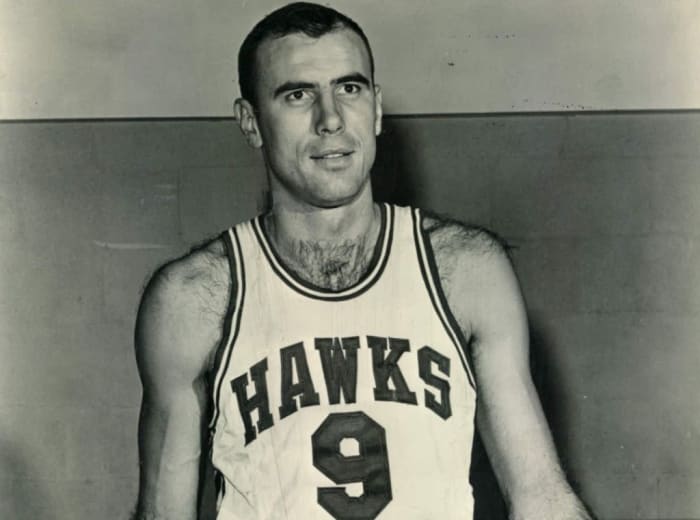
Two players own at least four MVP awards at the All-Star Game. The legendary Bob Pettit won all his awards as a member of the St. Louis Hawks. In 1956, Pettit led the West to a 108-94 win over the East. As a reserve, Pettit scored 20 points and 24 rebounds. With seven assists, he just missed out on the triple-double.
When Pettit won in 1958, it might have come as a surprise. Bob Cousy had a double-double of 20 points and 10 assists, while Paul Arizin scored 24 points in the 130-118 win by the East. However, voters saw that Pettit finished with 28 points and 26 rebounds and felt that his line was good enough to win MVP on a losing team.
Pettit went back to back with his win in 1959. He had a tough competitor on his own team. Elgin Baylor had 24 points and 11 rebounds in the 124-108 win over the East. Pettit was given MVP honors with 25 points and 16 assists. Had Jack Twyman secured two more rebounds, three players on the team could have had double-doubles.
The rebounding edge once again helped Pettit win an MVP. The West defeated the East 150-130 but had multiple candidates to win MVP. Walt Bellamy finished with 23 points and 17 rebounds. Elgin Baylor led the team with 32 points, while Oscar Robertson had 26 points and 13 assists. In the end, Pettit’s 20/20 of 25 points and 27 rebounds was reason enough to claim his fourth award.
Kobe Bryant – 4 Awards (2002, 2007, 2009, 2011)
By this time, Bryant’s teammate Shaquille O’Neal had already won an All-Star Game MVP. With Bryant’s competitive nature, you know he wanted to equal that out. Bryant’s 2002 performance featured 31 points, five rebounds, and five assists. He was the only player to play 30 minutes, and he shot 12 of 25 from the field in the 135-120 win over the East.
O’Neal won the 2004 award to go back up, so Bryant eventually went to work to catch up. Bryant once again scored 31 points to claim the 2007 award. Bryant added five rebounds, six assists, and six steals. His performance outplayed the 28 points by LeBron James to help the West win the game 153-132.
As mentioned, Bryant shared the award with O’Neal in 2009. While O’Neal had an impressive line in limited time, Bryant took advantage of the time he played. Chris Paul had 14 points and 14 assists, but Bryant was named the Co-MVP in the 146-119 blowout with 27 points, four rebounds, four assists, and four steals.
Easily, his best game was in 2011 in a tight 138-143 win over the East. He had to battle his own teammate for the MVP award. Kevin Durant scored 34 points, but Bryant’s double-double was enough to pull away. Bryant scored 37 points to lead all scorers but also added 14 rebounds. With four MVPs, Bryant and Pettit are one of a kind. Two years after his tragic death, the league announced the trophy would be named after Bryant. Even Bob Pettit, if he could, would likely agree that this trophy couldn’t be named after a better player.
Source: fadeawayworld


